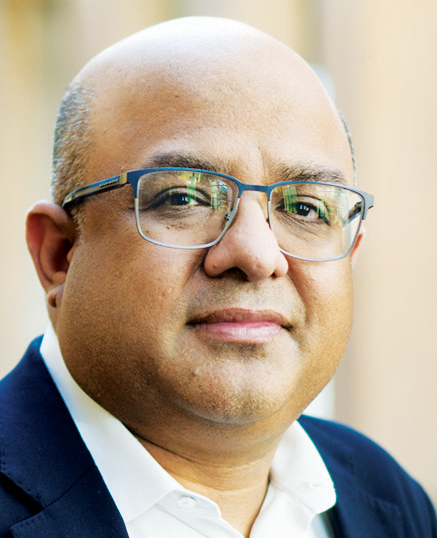National Day for Truth and Reconciliation
 |
| Dr Ahmer A. Karimuddin |
This 30th of September will mark the fourth annual National Day for Truth and Reconciliation, an opportunity for us to reflect on the painful legacy of the residential school system and its impact on Indigenous people. It is also an opportunity for us as physicians to assess how we can continue to help address anti-Indigenous racism in health care and do all we can to make the system more culturally safe, collectively and as individuals.
While we have made strides, there is still much work to do to educate ourselves, to recognize and unlearn colonialism and racism, and to take concrete action to build a health care system that safely meets the needs of Indigenous people in BC. Many of us remember when the last Indian hospital in BC closed in 1970. These were hospitals created for the express purpose of segregating Indigenous patients from the rest of the population.
The legacies of segregation and residential schools and the ongoing impacts are of significant concern for us all. Indigenous people have continually expressed not feeling safe in hospitals and emergency departments—our caring institutions. We continue to see that, despite significantly higher health care needs and comorbidities because of colonialism and racism, Indigenous patients continue to access health care services, including physicians and laboratory tests, at a fraction of the rate of the rest of the population. The use of emergency departments among Indigenous populations is almost twice that of the rest of the population, and there is much less primary care attachment. These systemic challenges for Indigenous patients have a significant impact, with reduced life expectancy and increased rates of living with chronic disease. This also manifested during the pandemic, when Indigenous people had higher rates of contracting COVID-19 and higher risks of being admitted to hospital.
Along with this, Indigenous physician colleagues continue to experience challenges. More than half of Indigenous physicians and nurses report having experienced racism at work, yet most feel unsafe to report this behavior and feel as though reporting it would have no impact. In my mind, this perhaps serves as the greatest indictment—even our colleagues, while working in the health care system, feel unsafe and unable to change it.
As a profession, we need to acknowledge the truths of the Truth and Reconciliation Commission of Canada’s reports and the In Plain Sight report to reconcile our country, our communities, and with our patients. Yes, we have made progress, but there is much more work to be done, and it needs to be done intentionally. This is a long-term endeavor that will take continued commitment, humility, and action to achieve. Indigenous patients and physicians must feel safe in the health care system, both as care providers and receivers. Indigenous cultural safety and cultural humility on the part of the provider must become a key priority and a foundational principle in BC’s health care system. However, such significant change and transformation can occur only by acknowledging the past.
To support physicians on their reconciliation journey, Doctors of BC, through the Joint Collaborative Committees, has worked with Indigenous partners to learn about and share the truth of Canada’s history of violence toward and oppression of Indigenous people, residential schools, and missing and deceased children, and the impact these tragedies have on our health care system and society today.
More information on our commitment, including ongoing work and programs, can be found on Doctors of BC’s Cultural Safety and Humility web page. You can also learn more about upcoming learning sessions on the Joint Collaborative Committees website. I encourage you to consider participating in one of these webinars, taking the Sa̲n'yas Indigenous Cultural Safety Training Program, and reviewing the health-related Calls to Action (#18–#24) from the Truth and Reconciliation Commission of Canada.
And on the 30th of September, I encourage you to wear orange to honor the survivors of residential schools, attend a local event in your community, and reflect on the effects of colonialism, its impacts on Indigenous Peoples, and the actions we must take to address anti-Indigenous racism in health care. Above all else, I urge you to be an ally for your Indigenous colleagues. As physicians, we can create lasting change—to create a health care system that is safe for all patients and providers.
—Ahmer A. Karimuddin, MD, FRCSC
Doctors of BC President
hidden
 |
| This work is licensed under a Creative Commons Attribution-NonCommercial-NoDerivatives 4.0 International License. |

